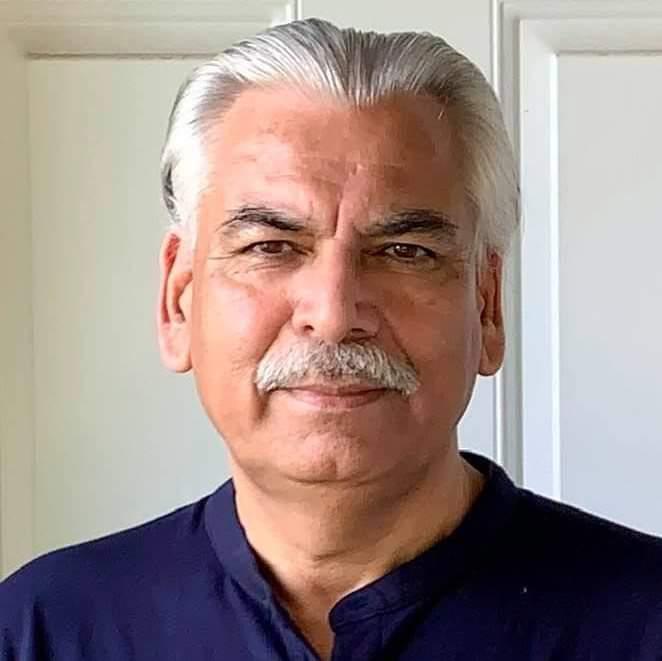Barrister Usman Ali, Ph.D.
Today, slogans of revolution echo across Pakistan. From political rallies to social media, the claim is repeated day and night: revolution is imminent. It seems as if it is already at the door, waiting only for an invitation to step inside. Every tweet, every video, every speech reinforces the idea that just a little more patience will topple the entire system. But the real question is: how many truly understand what a revolution is? Who brings it about? How does it happen? And through which leaders and workers is it realized? Without conscious answers to these questions, the cry for revolution remains an emotional deception.
A revolution is an all-encompassing and painful process. It is not merely a change of government or transfer of power; it is the uprooting of an entire order and the planting of a new one. A system that alters not just faces but principles, values, and centers of power. History teaches us that revolutions never come through passion alone. They require a clear ideology, principled leadership, organized parties, and the willingness to sacrifice. They do not arrive by accident, nor can they be staged on Twitter or Facebook.
History’s great revolutions make this plain. Consider the French Revolution of 1789. It was not only the execution of King Louis XVI but a revolt against centuries of feudal exploitation. The people, crushed by hunger, poverty, and injustice, found direction in a unifying idea: “Liberty, Equality, Fraternity”. This creed rallied thousands, inspired sacrifice, and reshaped France’s social and political order. The monarchy was destroyed, and in its place emerged a system that still influences Europe today.
The Russian Revolution of 1917 was similarly grounded in ideology. Lenin and his comrades spent years raising public consciousness, organizing the Bolsheviks, and enduring sacrifice before finally toppling the czarist regime. It was not merely the replacement of one ruler with another. Land ownership, production, education, health, and justice were all radically transformed. That revolution fueled workers’ movements worldwide and offered an alternative to capitalism.
The Iranian Revolution of 1979 was likewise born of clear vision and leadership. Ayatollah Khomeini led a movement of political, economic, and cultural awakening against the Shah’s absolute rule. The people were educated about the system’s flaws; activists endured prisons, exile, and martyrdom. In the end, a new state emerged on the foundations of Islamic principles. It demonstrated that religion, too, can serve as an ideological framework for revolution, provided leadership is disciplined and the people committed.
Pakistan’s own history also carries echoes of revolutionary zeal. Zulfikar Ali Bhutto’s era stands out as the most prominent example. His slogan “Roti, Kapra aur Makan”,bread, clothing, and shelter, was rooted in the plight of the common man. It shook public consciousness and injected fresh energy into politics. Millions took to the streets inspired by his promise. But was this truly a revolutionary ideology, or merely political strategy? Bhutto gave people hope, but did he build a lasting structure capable of changing the system itself? That question still hangs over Pakistan’s political landscape.
This brings us to the present: is there any political party today that genuinely carries a clear ideology? One that seeks not merely power, but system-wide transformation? Do our leaders possess the intellectual depth, moral authority, and courage needed to give people not just passion but awareness, leaders like Lenin, Khomeini, or Robespierre?
Here lies another essential truth. In every great revolution, the sacrifices of workers were as vital as the vision of leaders. Workers are the fuel that drives the engine of revolution. But are Pakistan’s political workers true agents of change, or merely crowds moved by slogans? Do they embody discipline, learning, and public service? Or are they only “keyboard revolutionaries” on social media, quick to praise personalities and abuse opponents, but absent from the real struggle?
Too often in Pakistan, workers fall into personality cults. They treat leaders as saviors without questioning their ideology or organizational strength. True revolution never arises from blind loyalty. It is born of collective consciousness and principled politics. If workers remain mere yes-men, focused only on sloganeering instead of service, then revolution will remain a mirage.
Every Pakistani must confront these questions. Is there a leader or party today that embodies ideology, sacrifice, and integrity? Are our workers willing to rise above personal interests and serve the nation? If not, then we must accept that we are not ready for revolution, we are only addicted to its slogans.
Social media may be a tool for revolution, but it is not the revolution itself. It is a weapon; the real battle is fought in the streets, in institutions, and in the sacrifices of people. Revolution belongs only to those nations willing to hear the truth and change themselves. Without ideology, organization, leadership, and sacrifice, revolution is no more than a slogan. As long as it remains a fashion statement or a mode of protest, true change will remain out of reach. Revolution is the name of a serious, difficult, and continuous struggle. It demands sacrifice, perseverance, and leaders rooted in principle. Without that, there is only noise, not change.

